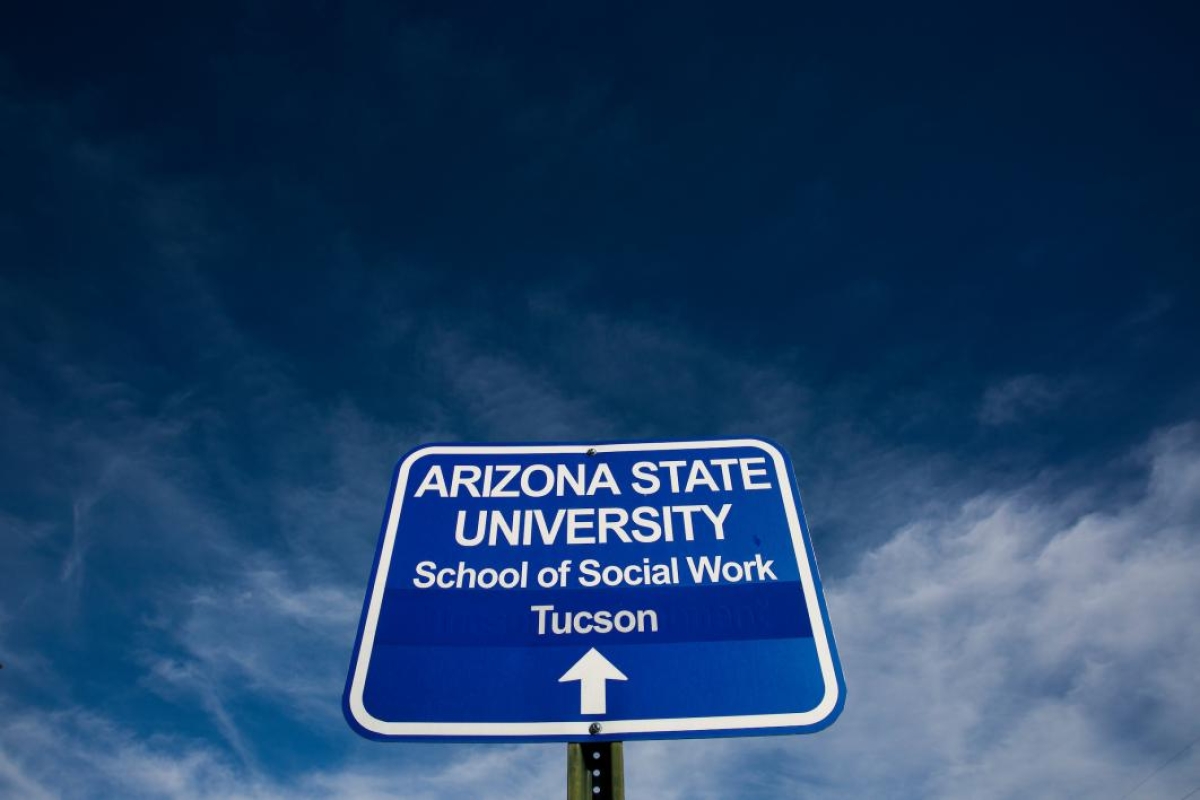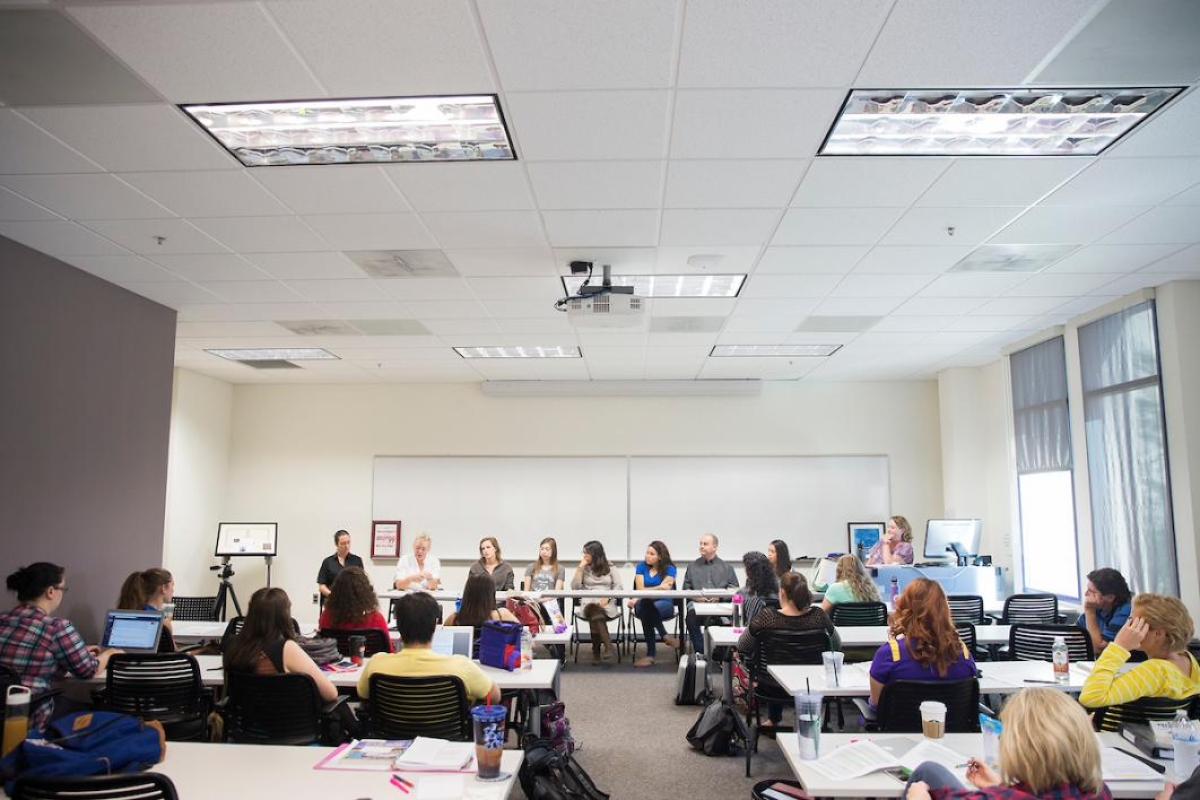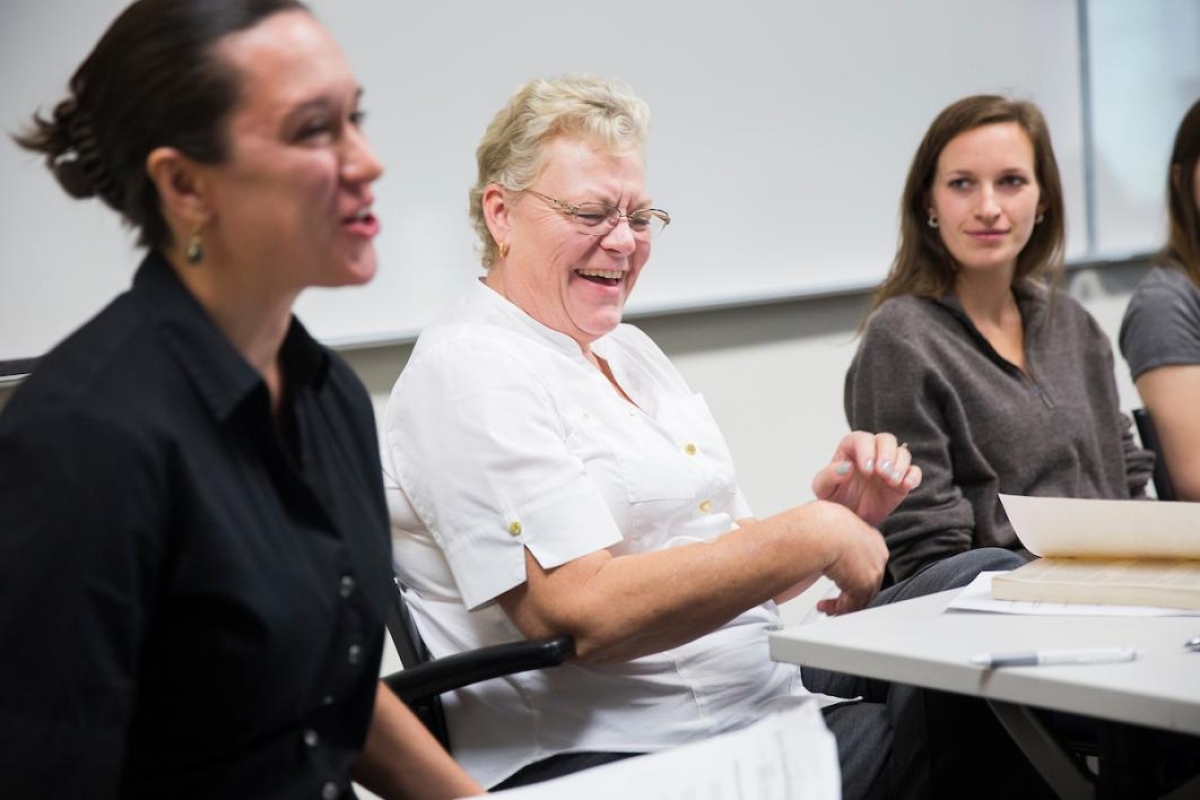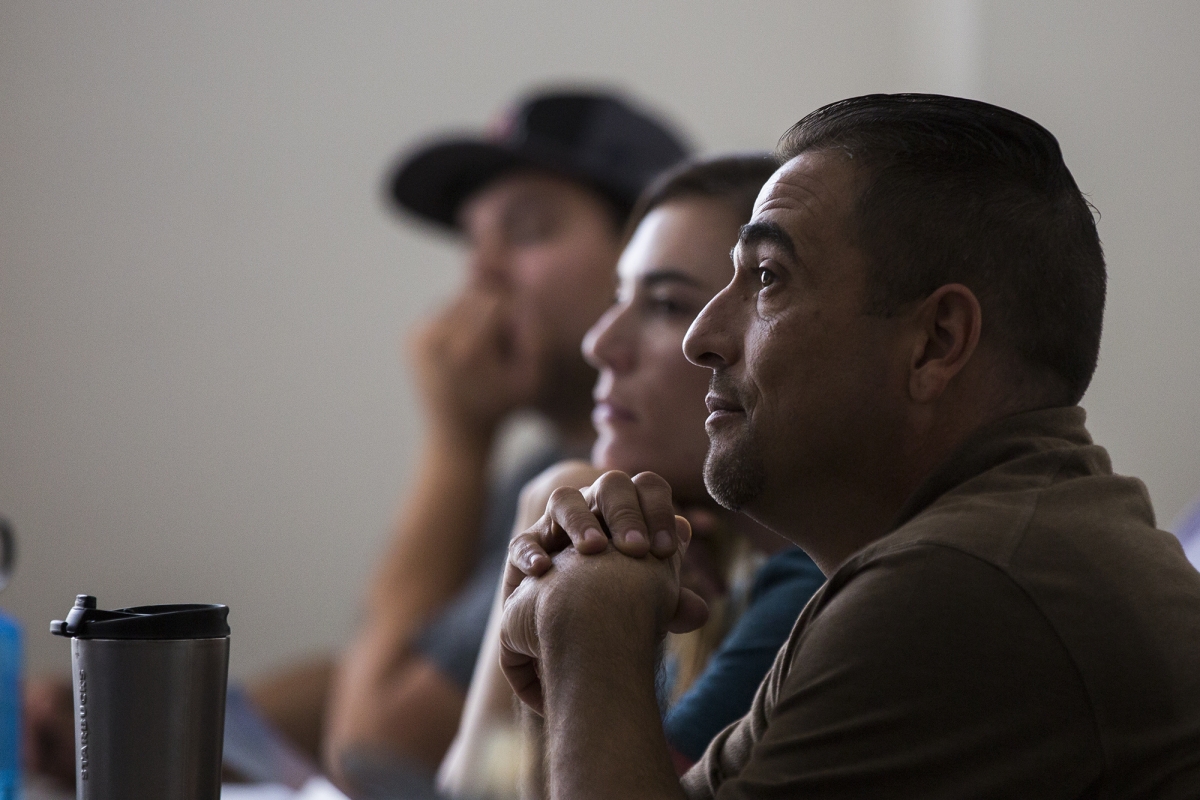Editor's note: This story is being highlighted in ASU Now's year in review. To read more top stories from 2016, click here.
When a troubled woman didn’t show up for her court date, the police didn’t try to arrest her. Instead, the chief sent two Arizona State University students to check on her.
The two young women are working toward master’s of social work degrees at the ASU School of Social Work program based in Tucson, and are interns at the South Tucson Police Department. As part of the department’s community-policing initiative, Natalie Callahan and Kirsten Olivarez interact directly with people in the neighborhood to help them get the services they need rather than be arrested.
“We’ll say, ‘She didn’t show up to court, and we think she’s in a rough spot.’ It was amazing how quickly we knew exactly who these people are,” Olivarez said.
This is the second year that the South Tucson Police Department has had social work interns, but the ASU program has been embedded into southern Arizona for decades. ASU graduates work at shelters, drug-rehabilitation centers, family-services clinics, schools and hospitals.
They work face-to-face every day with people who are sleeping on the streets, or selling their bodies to feed an addiction or desperately seeking help for a mentally ill child.
“There’s a population that’s transient and some have serious mental illness, and others are addicted and they require a lot more services so it’s a lot of interaction with these people because constantly re-arresting them isn’t working,” Callahan said.
“We’re focusing on the dignity of the people, and just because they made a mistake once doesn’t mean they have to continue making that mistake and what we can do help them make changes in their life,” Olivarez said.
Symptoms of larger issues
The most common crime in South Tucson is shoplifting, according to Michael Ford, the police chief. But that is a symptom of larger issues, such as addiction and poverty, and that’s why a partnership with the ASU School of Social Work is ideal.
“There are a lot of different roles we take and even in that enforcement role, the police are trying to guide people toward services,” said Ford, adding that the interns work on assessing the needs of the population, seeing the entire process from initial contact with police, through the courts to the final outcome.
“Having the interns helps us have a broader vision of the services we’re providing, and whether the investment we’re making in our resources is working,” he said.
Ford decided to bring on the interns after working in the community with Josefina Ahumada, field education coordinator for the ASU School of Social Work in Tucson.
“One thing I’m excited about is that we know that many of the issues that come up with folks who intersect with the police are really issues about poverty,” Ahumada said.
She said that Ford’s community policing model, in which officers try to engage with people, is an ideal fit for social-work interns.
“How can we proactively engage in those issues so at the individual level so people are not forced to commit a crime because they’re trying to raise money to buy diapers?” Ahumada said.
Embedded in the community
The need for social workers is growing. The U.S. Bureau of Labor Statistics predicts that the demand for social workers will grow 12 percent from 2014 to 2024, faster than the average for all occupations.
Despite graduating thousands of social workers into the field for nearly 40 years, the ASU School of Social Work in Tucson was nearly shut down twice. Deep state budget cuts in 2009 and 2010 threatened to close the location. Both times, the Tucson community rallied to voice support, and the ASU Tucson site was spared, according to Michelle Carney, director of the School of Social Work.
The program was started in the mid-1970s by Ann Weaver Nichols, a professor who noticed that students were commuting from Tucson to Tempe for social work classes. She started offering a few courses on the University of Arizona campus, which were wildly popular, and a full degree program was launched in 1978.
Now, the Tucson site has 221 students — 55 undergraduates pursuing a bachelor’s of social work and 166 graduate students in the master’s of social work program. That’s up from 158 total students in 2007.
Undergraduates come into the ASU Tucson program as juniors, with most transferring from Pima Community College and some from the University of Arizona, which doesn’t offer a social work degree.
The curriculum is the same as the one offered at ASU’s Downtown Phoenix campus, but Carney said the Tucson students develop their own sense of community. The program is housed in a Tucson office park with the United Way and other social-service agencies.
“They’re on that one floor, all the classes are there, the faculty members are there,” she said.
“It’s a community-oriented process. The students study together and get to know each other and they end up working together in the Tucson community.”
The cornerstone of the program is the internship, or “field education.” Bachelor’s students spend their entire senior year in a placement working directly in the community. Master’s students work a whopping 960 hours in the field, with their second year in their chosen area of concentration.
Many of the program’s students are from Tucson, and after spending so much internship time in the local agencies, networking with each other, many stay in the area. Ahumada, the field education coordinator, said that on a recent visit with the interns at the Southern Arizona VA Health Care System, she found that the overwhelming majority of the professional social workers there were graduates of the ASU program.
Ford said that interacting with the interns has given him a fresh perspective on his police work.
“I may see an event as it relates to a series of events, but it’s new for them. They’ll ask ‘how?’ or ‘why?’ and I have to pause and that makes me think about how we can do things differently,” he said.
Making a difference
Randall Rutherford, a student in the bachelor’s of social work program at Tucson, wants to be a drug-abuse counselor and is interning at the Salvation Army’s drug-rehabilitation center while also working at Cottonwood, an expensive private facility in Tucson.
“I see a big difference. The rock bottom at the Salvation Army is a lot different,” he said. “The people there are very low-income, generally hard-core addicts, and they’re so shorthanded at the clinic that I get to do a lot with the clients.”
Rutherford decided to pursue his career after personal experience with addiction.
“I met some counselors who were inspirational and instrumental in getting me started in helping other people. I feel like I can really make a difference, and they listen to me more than someone who hasn’t had that experience,” he said.
Other students seek social justice through policy. Jodi Boyd worked directly with drug addicts for 14 years before entering the master’s program at ASU in Tucson.
“My experience is that sometimes people don’t want to change. A lot of times you tell a client ‘this is the list of things you have to do’ and they’re rebels,” said Boyd, who is interning at the Primavera Foundation, an anti-poverty agency in Tucson. Recently, she helped at a workshop for people who had been convicted of felonies to restore their rights.
“I want to go into policy and administration so we can change the way we do things, so we’re more accepting of the reasons why people don’t want to come into a program, and so we can develop programs for people who are just as human as everyone else.”
Boyd learned firsthand that not everyone is ready to accept help. The interns in the South Tucson Police Department didn’t find the woman who missed her court date, and later, she declined offers of help from Ford.
“Hopefully, one day soon,” Callahan said.
Ahumada said that field work gives the students the day-to-day skills they need in the face of daunting odds.
“Sometimes when we think about our community problems — poverty, drugs, gangs — we can make a laundry list, and it sounds so depressing and what can anyone do about it?
“Well, let me tell you, there’s lot that you can do. And that’s what social work is about. We know there’s a certain science as well an art that goes into making effective changes.
“That’s what energizes social work students.”
Top photo: A student group evaluates the needs of a hypothetical client during class at ASU's School of Social Work in Tucson, on Monday, Oct. 31. Photo by Deanna Dent/ASU Now.
More Arts, humanities and education

ASU professor's project helps students learn complex topics
One of Arizona State University’s top professors is using her signature research project to improve how college students learn science, technology, engineering, math and medicine.Micki Chi, who is a…

Award-winning playwright shares her scriptwriting process with ASU students
Actions speak louder than words. That’s why award-winning playwright Y York is workshopping her latest play, "Becoming Awesome," with actors at Arizona State University this week. “I want…

Exceeding great expectations in downtown Mesa
Anyone visiting downtown Mesa over the past couple of years has a lot to rave about: The bevy of restaurants, unique local shops, entertainment venues and inviting spaces that beg for attention from…






